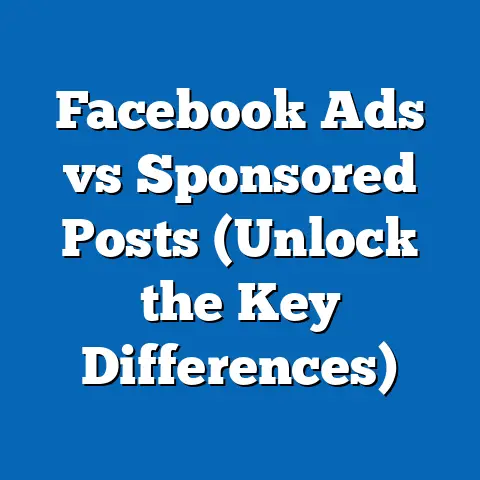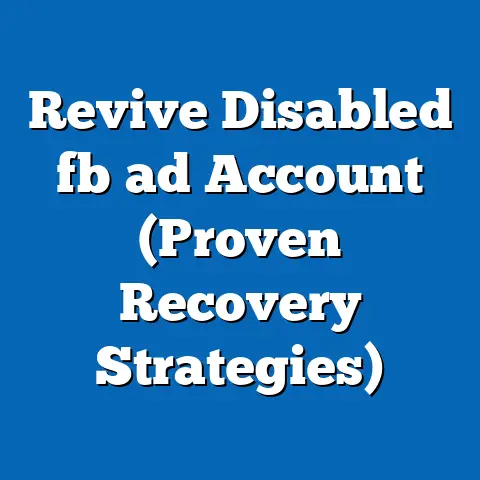Master Group Etiquette (Elevate Facebook Strategy)
In the ever-evolving landscape of social media, where trends come and go with the blink of an eye, one thing remains constant: the importance of effective communication and etiquette.
Think of it like this: even with the fanciest algorithms and targeting options, a Facebook group is still, at its heart, a conversation.
And just like any conversation, whether it’s around a dinner table or in a virtual forum, the way we interact with each other matters.
While the principles of etiquette might seem old-fashioned to some, they’re actually more crucial than ever in fostering productive interactions, building meaningful relationships, and creating thriving online communities.
Facebook groups, in particular, have emerged as modern-day town squares.
They’re spaces where people come together to share ideas, ask questions, offer support, and connect over shared interests.
I remember when I first started using Facebook groups for my business – I was so focused on promoting my services that I completely overlooked the importance of building genuine relationships.
It wasn’t until I started actively listening to the group members, participating in discussions, and offering value without always pushing my agenda that I began to see real results.
That experience taught me a valuable lesson: mastering group etiquette is essential for anyone looking to leverage Facebook groups for marketing or community building.
It’s not just about being polite; it’s about creating an environment where people feel valued, respected, and engaged.
When you get that right, you unlock the true potential of Facebook groups to enhance engagement, foster a positive community, and ultimately, achieve your strategic goals.
This article will dive deep into the world of Facebook group etiquette, providing you with the knowledge and tools you need to elevate your Facebook strategy and create a thriving online community.
Understanding Facebook Groups
So, what exactly are Facebook groups, and why should you care about them as a marketer?
Simply put, Facebook groups are online communities centered around shared interests, causes, or affiliations.
They provide a space for members to connect, communicate, and collaborate with each other.
But unlike Facebook pages, which are primarily designed for broadcasting information, groups are built for interaction.
There are three main types of Facebook groups:
- Public Groups: These groups are open to anyone on Facebook.
Anyone can see the group’s content and members, making them ideal for reaching a wide audience and building brand awareness. - Closed Groups: Also known as private groups, these require members to request access to join.
While the content within the group is only visible to members, the group itself is still searchable on Facebook.
This type of group is great for fostering a sense of community and exclusivity. - Secret Groups: These are the most private type of group.
They don’t appear in search results, and only members can see the group and its content.
Secret groups are often used for sensitive topics or internal team communication.
From a digital marketing perspective, Facebook groups offer a powerful platform for building community, engaging with customers, and driving business results.
They allow you to:
- Connect with your target audience: By creating or joining groups related to your industry or niche, you can directly connect with potential customers and build relationships with them.
- Generate leads: Facebook groups can be a great source of qualified leads.
By providing valuable content and engaging with members, you can attract potential customers to your business. - Increase brand awareness: Active participation in relevant groups can help you increase brand awareness and establish yourself as an authority in your industry.
- Gather feedback: Facebook groups provide a direct line of communication with your customers, allowing you to gather valuable feedback on your products, services, and marketing efforts.
- Drive traffic to your website: By sharing relevant content and engaging in discussions, you can drive traffic from Facebook groups to your website.
According to Facebook, there are over 1.8 billion people using Facebook groups every month.
That’s a massive audience with immense potential for businesses.
In fact, a study by Sprout Social found that 70% of marketers believe that Facebook groups are effective for achieving their marketing goals.
I’ve personally seen the power of Facebook groups firsthand.
By creating a group for my clients, I was able to build a loyal community of engaged users who actively participated in discussions, provided valuable feedback, and ultimately, became brand advocates.
Takeaway: Facebook groups are powerful tools for building community, engaging with customers, and driving business results.
Understanding the different types of groups and their potential benefits is the first step towards leveraging them effectively.
The Importance of Group Etiquette
Now that we’ve established the value of Facebook groups, let’s talk about why group etiquette matters.
In essence, group etiquette refers to the set of guidelines and principles that govern interactions within a Facebook group.
It’s about creating a positive, respectful, and inclusive environment where members feel comfortable sharing their thoughts, asking questions, and engaging with each other.
Think of it like this: a Facebook group is like a virtual living room.
You wouldn’t want to walk into someone’s living room and start shouting, interrupting, or being disrespectful, would you?
The same principles apply to Facebook groups.
Poor etiquette can have a detrimental impact on group dynamics, member retention, and your brand reputation.
Some of the negative consequences of poor etiquette include:
- Decreased engagement: When members feel uncomfortable or disrespected, they’re less likely to participate in discussions or engage with the group’s content.
- Increased conflict: Poor etiquette can lead to misunderstandings, arguments, and even bullying within the group.
- Loss of members: If the group environment becomes toxic or unpleasant, members are likely to leave.
- Damage to brand reputation: Negative interactions within your group can reflect poorly on your brand and damage your credibility.
On the other hand, good etiquette can significantly enhance user experience, encourage participation, and facilitate meaningful discussions.
When members feel valued, respected, and heard, they’re more likely to:
- Engage with the group’s content: They’ll actively participate in discussions, share their thoughts, and provide valuable feedback.
- Build relationships with other members: A positive group environment fosters connections and friendships among members.
- Become brand advocates: When members feel appreciated and valued, they’re more likely to become loyal customers and brand advocates.
- Contribute to the group’s growth: They’ll invite their friends to join, share the group’s content, and help to build a thriving community.
I’ve seen firsthand the difference that good etiquette can make.
I once joined a Facebook group for entrepreneurs that was initially quite chaotic.
Members were constantly promoting their own products and services, and there was very little genuine interaction.
However, after the group admin implemented a clear set of etiquette guidelines and started actively moderating the discussions, the group transformed into a supportive and collaborative community.
Members started sharing their experiences, offering advice, and celebrating each other’s successes.
The level of engagement skyrocketed, and the group became a valuable resource for entrepreneurs.
Takeaway: Good etiquette is essential for creating a thriving Facebook group.
It enhances user experience, encourages participation, and ultimately, contributes to the success of your group and your brand.
Key Principles of Group Etiquette
So, what are the fundamental principles of group etiquette?
While the specific guidelines may vary depending on the group’s purpose and audience, there are some core principles that apply to virtually every Facebook group:
- Respect: This is the cornerstone of good etiquette.
It means treating all members with courtesy, empathy, and consideration, regardless of their background, beliefs, or opinions.
Avoid making personal attacks, using offensive language, or engaging in discriminatory behavior. - Inclusivity: Create a welcoming and inclusive environment where everyone feels comfortable participating.
Be mindful of different perspectives and avoid making assumptions or generalizations.
Encourage diverse voices and perspectives. - Constructive Communication: Focus on providing helpful and valuable information.
Avoid posting irrelevant or spammy content.
When disagreeing with someone, do so respectfully and constructively, focusing on the issue rather than the person. - Active Listening: Pay attention to what other members are saying and try to understand their perspectives.
Ask clarifying questions and show genuine interest in their thoughts and feelings. - Empathy: Put yourself in other members’ shoes and try to understand their experiences.
Be sensitive to their needs and concerns, and offer support and encouragement when appropriate. - Relevance: Ensure that your posts and comments are relevant to the group’s topic and purpose.
Avoid hijacking discussions or promoting unrelated products or services. - Transparency: Be honest and upfront about your intentions.
Disclose any affiliations or relationships that may influence your opinions or recommendations. - Privacy: Respect the privacy of other members.
Avoid sharing their personal information without their consent.
Be mindful of the information you share about yourself.
Implementing these principles requires active effort and consistent reinforcement.
Here are some actionable tips for putting them into practice:
- Create a clear set of group rules: Outline the specific guidelines for acceptable behavior in your group.
Make sure the rules are easily accessible to all members.
I often include a pinned post at the top of the group with a clear and concise summary of the rules. - Lead by example: As the group admin or moderator, you set the tone for the group.
Be respectful, inclusive, and constructive in your own interactions. - Actively moderate the group: Monitor discussions and address any violations of the group rules promptly.
Be fair and consistent in your enforcement. - Encourage positive interactions: Recognize and reward members who demonstrate good etiquette.
Highlight positive contributions and foster a sense of community. - Address conflicts constructively: When disagreements arise, intervene promptly and facilitate a respectful discussion.
Help members to find common ground and resolve their differences.
Moderators play a crucial role in upholding group etiquette. They are responsible for:
- Enforcing the group rules: They must ensure that all members adhere to the established guidelines for acceptable behavior.
- Monitoring discussions: They must actively monitor discussions and address any violations of the group rules promptly.
- Resolving conflicts: They must intervene in disagreements and help members to find common ground.
- Creating a positive environment: They must foster a sense of community and encourage positive interactions among members.
Addressing conflicts requires a delicate balance of firmness and empathy.
Here are some best practices for managing difficult conversations:
- Stay calm and objective: Avoid getting emotionally involved in the conflict.
- Listen to all sides of the story: Give each member a chance to express their perspective.
- Focus on the issue, not the person: Address the specific behavior or comment that is causing the conflict, rather than attacking the individual.
- Encourage respectful communication: Remind members to use respectful language and avoid personal attacks.
- Seek common ground: Help members to find areas of agreement and build from there.
- Take action when necessary: If the conflict escalates or violates the group rules, take appropriate action, such as issuing a warning or removing the offending member.
Takeaway: By embracing the principles of respect, inclusivity, and constructive communication, you can create a Facebook group that fosters positive interactions, encourages participation, and ultimately, achieves your strategic goals.
Elevating Your Facebook Strategy Through Etiquette
Mastering group etiquette is not just about being nice; it’s about strategically elevating your entire Facebook strategy.
When you cultivate a positive and respectful community, you’re building a strong foundation for brand loyalty, trust, and ultimately, business success.
Think about it: people are more likely to engage with brands they trust and respect.
And they’re more likely to trust brands that demonstrate genuine care for their customers and community.
By prioritizing group etiquette, you’re signaling to your audience that you value their opinions, respect their boundaries, and are committed to creating a positive online experience.
This translates into tangible benefits for your brand, including:
- Improved brand perception: A well-managed and respectful Facebook group can enhance your brand’s image and reputation.
- Increased trust and loyalty: When members feel valued and respected, they’re more likely to trust your brand and become loyal customers.
- Higher engagement rates: A positive group environment encourages participation and engagement, leading to more meaningful interactions and valuable feedback.
- Increased reach and visibility: Happy and engaged members are more likely to share your content and invite their friends to join, expanding your reach and visibility.
- Improved lead generation and conversions: A strong and engaged community can be a valuable source of qualified leads and conversions.
So, how can you leverage group etiquette to achieve your marketing goals?
Here are some actionable strategies:
- Create clear and concise group guidelines: As mentioned earlier, establishing clear guidelines for acceptable behavior is crucial.
Make sure the guidelines are easily accessible to all members and align with your brand values.
I recommend including examples of both acceptable and unacceptable behavior to avoid any ambiguity. - Actively monitor and moderate the group: This is essential for maintaining a positive environment.
Respond promptly to any violations of the group rules and address any conflicts constructively. - Encourage positive interactions: Recognize and reward members who demonstrate good etiquette.
Highlight positive contributions and foster a sense of community. - Lead by example: As the group admin or moderator, you set the tone for the group.
Be respectful, inclusive, and constructive in your own interactions. - Provide valuable content: Share content that is relevant, informative, and engaging for your target audience.
Avoid posting irrelevant or spammy content. - Engage with members: Respond to comments, answer questions, and participate in discussions.
Show genuine interest in your members’ thoughts and feelings. - Run contests and giveaways: This is a great way to encourage participation and engagement.
Make sure the contests and giveaways are relevant to your target audience and align with your brand values. - Host live Q&A sessions: This is a great way to connect with your members in real-time and answer their questions.
- Create a sense of community: Foster a sense of belonging and connection among your members.
Encourage them to share their experiences, offer advice, and support each other.
Creating guidelines for group members that encourage positive interactions and align with brand values is a crucial step.
Here’s a template you can adapt:
[Your Brand Name] Facebook Group Guidelines
Welcome to the [Your Brand Name] Facebook Group!
We’re excited to have you as part of our community.
This group is a space for [briefly describe the purpose of the group, e.g., sharing tips, asking questions, connecting with like-minded individuals].
To ensure that everyone has a positive and productive experience, we ask that you follow these guidelines:
- Be respectful: Treat all members with courtesy and respect.
Avoid making personal attacks, using offensive language, or engaging in discriminatory behavior. - Be inclusive: Create a welcoming and inclusive environment where everyone feels comfortable participating.
- Be constructive: Focus on providing helpful and valuable information.
Avoid posting irrelevant or spammy content. - Stay on topic: Ensure that your posts and comments are relevant to the group’s topic and purpose.
- No self-promotion: While we encourage you to share your expertise, please refrain from excessive self-promotion or spamming the group with links to your products or services.
- Respect privacy: Avoid sharing other members’ personal information without their consent.
- Follow the rules: Violations of these guidelines may result in a warning or removal from the group.
Thank you for your cooperation in helping us create a positive and productive community!
Integrating etiquette into content creation is also essential. Here are some tips:
- Craft thoughtful posts: Before posting anything, ask yourself: “Is this valuable?
Is it respectful?
Is it relevant?” - Respond to comments promptly and respectfully: Show your members that you value their input by responding to their comments and questions.
- Engage with members in a genuine way: Don’t just broadcast information; actively participate in discussions and build relationships with your members.
Takeaway: Mastering group etiquette is not just about being polite; it’s about strategically elevating your entire Facebook strategy and building a strong foundation for brand loyalty, trust, and business success.
Case Studies and Success Stories
To illustrate the power of group etiquette in action, let’s take a look at a few case studies of brands and communities that have successfully utilized it to enhance their Facebook strategies:
Case Study 1: Sephora Beauty Insider Community
Sephora, the beauty retailer, has built a thriving Facebook group called the “Beauty Insider Community.” This group is a space for beauty enthusiasts to connect, share tips, ask questions, and get advice from Sephora experts.
Sephora actively moderates the group, ensuring that all interactions are respectful and constructive.
They also provide valuable content, such as tutorials, product reviews, and exclusive offers.
The results?
The Beauty Insider Community has become a valuable asset for Sephora, driving engagement, building brand loyalty, and generating valuable feedback.
Members actively participate in discussions, share their experiences, and recommend Sephora products to their friends.
Key Takeaways:
- Focus on providing value: Sephora provides valuable content and expertise to its community members.
- Actively moderate the group: Sephora actively moderates the group to ensure that all interactions are respectful and constructive.
- Foster a sense of community: Sephora creates a sense of belonging and connection among its members.
Case Study 2: HubSpot’s Inbound Marketers Community
HubSpot, the marketing automation software company, has created a Facebook group called the “Inbound Marketers Community.” This group is a space for marketers to connect, share tips, ask questions, and learn from each other.
HubSpot actively participates in the group, providing valuable content, answering questions, and facilitating discussions.
The results?
The Inbound Marketers Community has become a valuable resource for marketers, driving engagement, building brand awareness, and generating leads for HubSpot.
Members actively participate in discussions, share their experiences, and recommend HubSpot’s software to their colleagues.
Key Takeaways:
- Provide valuable content: HubSpot provides valuable content and expertise to its community members.
- Actively participate in the group: HubSpot actively participates in the group, answering questions and facilitating discussions.
- Create a sense of community: HubSpot creates a sense of belonging and connection among its members.
Case Study 3: Lululemon’s Ambassador Program
Lululemon, the athletic apparel company, has a Facebook group for its brand ambassadors.
This group is a space for ambassadors to connect, share their experiences, and receive updates from Lululemon.
Lululemon actively engages with its ambassadors, providing them with exclusive content, inviting them to events, and soliciting their feedback.
The results?
Lululemon’s ambassador program has become a valuable asset for the company, driving brand awareness, generating leads, and building brand loyalty.
Ambassadors actively promote Lululemon’s products and services to their followers and provide valuable feedback on the company’s marketing efforts.
Key Takeaways:
- Engage with your audience: Lululemon actively engages with its brand ambassadors, providing them with exclusive content and inviting them to events.
- Solicit feedback: Lululemon solicits feedback from its ambassadors on its products and marketing efforts.
- Create a sense of exclusivity: Lululemon creates a sense of exclusivity for its brand ambassadors.
These case studies highlight the importance of prioritizing group etiquette in your Facebook strategy.
By creating a positive, respectful, and engaging community, you can build brand loyalty, drive engagement, and achieve your marketing goals.
Takeaway: By learning from successful examples, you can gain valuable insights into how to leverage group etiquette to enhance your Facebook strategy and achieve your business objectives.
Conclusion
In conclusion, mastering group etiquette is not just a nicety; it’s a necessity for anyone looking to leverage Facebook groups effectively.
From understanding the different types of groups to implementing key principles of respect, inclusivity, and constructive communication, we’ve explored the essential elements of creating a thriving online community.
Remember, a Facebook group is more than just a marketing platform; it’s a virtual space where people come together to connect, share, and learn.
By prioritizing etiquette, you’re creating an environment where members feel valued, respected, and engaged, which ultimately translates into tangible benefits for your brand, including improved perception, increased trust, and higher engagement rates.
I encourage you to reflect on your own group interactions and consider how you can apply the principles of etiquette to foster a more positive and productive community.
Take the time to create clear guidelines, actively moderate your group, and lead by example.
By doing so, you’ll not only enhance your Facebook strategy but also contribute to a more respectful and inclusive online world.
Now, I challenge you to take action.
Start by reviewing your own Facebook group guidelines and identify areas for improvement.
Then, commit to actively engaging with your members in a more respectful and constructive way.
By mastering group etiquette, you can unlock the true potential of Facebook groups and achieve your strategic goals.
Go forth and create a thriving online community!






